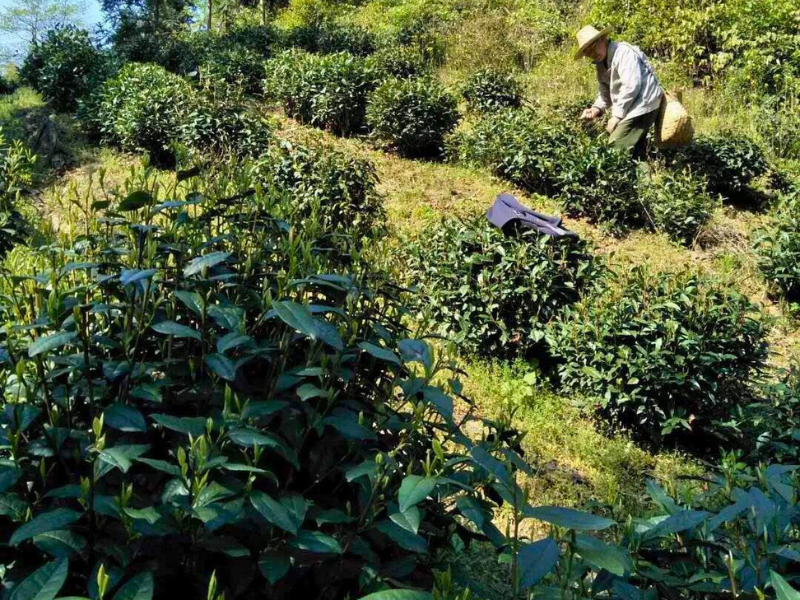
The Growing Area of Tai Ping Hou Kui
The production area of the real Taiping Houkui is limited to three villages only; namely, Hou-keng (Monkey Pit), Hou-cun (Monkey Village) and Yan-jia (Yan Family).
These three villages are located at Xin-ming Courtyard (Xin-ming Xiang), at Huang-shan City, Anhui Province.
The tea gardens are scattered around t the mountainous area. The present primitive forest is rich in decomposed soil and it consistently supplies minerals to ensure exuberant growth of tea plant naturally. One of the essential factors for good green tea is its mellow taste. This taste originates from the amino acid called theanine. Young buds contain high level of theanine, but it is converted to polyphenol such as catechins when tea leaves receive sun light.
On the other hand, less sunshine will maintain the high level of theanine in the leaves as bio-conversion does not effectively take place. The reason what makes the original Taiping Houkui very rich in amino acid is because of the high-elevated area which is often covered with fog which hinders direct sunlight on the leaves. In particular, Hou-keng is the best production area among the three places aforementioned thanks to its location which is facing to the north and slightly slanted to the East. The hillside is under shady area and protected from strong sunlight. In addition to the foggy condition, this shady location is favorable to reserve higher level of amino acid in tea leaves. Besides, at high elevation, there is a huge temperature difference between daytime and nighttime.
During the day, there is sufficient sun light and tea leaves vigorously produce plentiful of substances such as amino acid and carbohydrate, which are essential for the exclusive quality tea as well as the growth of tea leaves.
At night, if the temperature is high, metabolism is continually taking place, and tea leaves will consume the substances that were produced during the day time. However, at high elevations, the lower atmospheric temperature at night causes the tea leaves to become less active and therefore these substances remain in the leaves.
With these factors, tea leaves which are very rich in these substances contribute significantly to the quality of tea.
